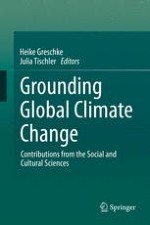
2015 | OriginalPaper | Chapter
1. Introduction: Grounding Global Climate Change
Authors : Heike Greschke, Julia Tischler
Published in: Grounding Global Climate Change
Publisher: Springer Netherlands
Activate our intelligent search to find suitable subject content or patents.
Select sections of text to find matching patents with Artificial Intelligence. powered by
Select sections of text to find additional relevant content using AI-assisted search. powered by